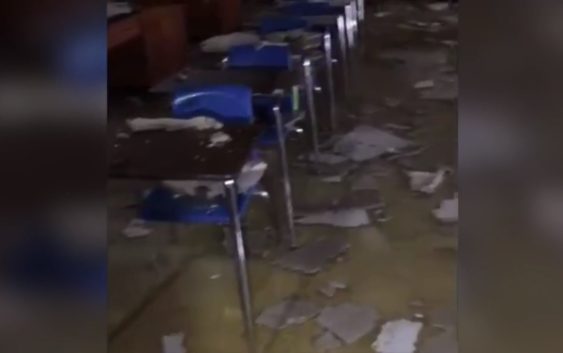- Weather Impact Alert: Cold front could trigger severe weather in Houston area this weekend | See timeline
- Violent storms cut through the South and Midwest, spawning tornadoes and killing 3
- Above-normal active 2025 hurricane season predicted by Colorado State University
- Cold front could trigger severe weather in Houston area this weekend | Timeline for potential storms
- Severe weather possible for Houston this weekend | Weather Impact Alert issued
NC will reduce testing for elementary schools hard hit by Hurricane Florence

North Carolina elementary schools who were hard hit by Hurricane Florence will get some relief from having to give state-required tests while they recover from the effects of the storm.
The State Board of Education unanimously voted Tuesday to waive a policy requiring kindergarten through third-grade students to take three reading assessments this school year. State education officials say districts that were hardest hit by the storm, such as those where students lost significant amount of time when schools closed, will be eligible to receive the one-year waiver.
“We welcome any opportunity like this to provide relief and support to districts and charter schools affected by Florence and now Michael,” state board chairman Eric Davis said at the end of the emergency meeting.
Some schools still haven’t reopened since Florence reached landfall in North Carolina on Sept. 14. The General Assembly has moved to provide relief, including giving money to repair damaged schools and allowing districts to not make up some of the lost school days.
Florence arrived shortly after the beginning of the school year as elementary schools were working to carry out Read To Achieve, the state program aimed at getting students proficient in reading by third grade.
Under state board policy, K-3 students are supposed to be assessed in reading at the beginning, middle and end of the school year using the mCLASS program. But Abbey Whitford, K-3 literacy consultant for the southeast region at the state Department of Public Instruction, said Florence left some districts with as few as 1 percent of schools having done the mCLASS assessments.
Under the waiver, Florence-impacted schools can skip the beginning of the year assessment in kindergarten and the middle of the year assessment in first through third-grades. Schools will have until Oct. 26 to request the waiver from DPI.
“This will give teachers the time to get back in class with their students, get them on a routine schedule and then get enough instructional days in the classroom to do the beginning of the year assessment and then wait until the end of the year do their final assessment,” said Pam Shue, deputy state superintendent for early learning.